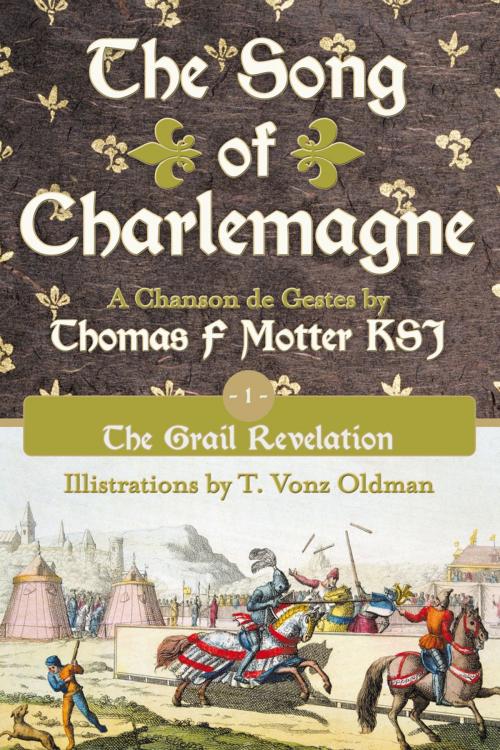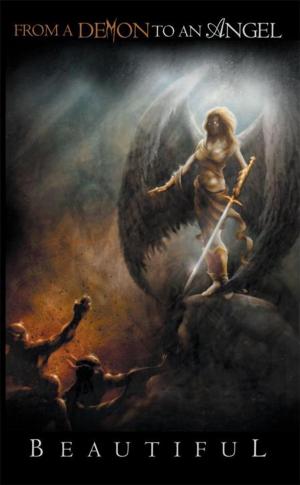| Author: | Thomas F Motter KSJ | ISBN: | 9781456721862 |
| Publisher: | AuthorHouse | Publication: | February 4, 2011 |
| Imprint: | AuthorHouse | Language: | English |
| Author: | Thomas F Motter KSJ |
| ISBN: | 9781456721862 |
| Publisher: | AuthorHouse |
| Publication: | February 4, 2011 |
| Imprint: | AuthorHouse |
| Language: | English |
Ganelon had grossly underestimated Rolands savoir faire in the handling of lance and shield under the conditions of a full-on tilt. Figuring Roland would be leaning forward like any novice, Ganelon had decided to aim dead-center on his boss, which, had Roland been assuming such a posture, would have placed the dukes lance at a perfect right angle to Rolands shield maximizing its full impact and most likely unhorsing him.
However, Roland was no novice. As Ganelon had lowered his lancepoint early, thus revealing where hed intended to make his hit, Roland had moved his shield-boss in line to accommodate him. But, in the last moment before impact, Roland had leaned back and braced placing his shield not only on a direct line with the dukes lance-point, but also at a sloping angle upward. The result was as anticipated. The lance glanced harmlessly up and away as hed completed the pass.
The historic events of the period following the fall of the Roman Empire fr om 450 AD to 800 AD are sketchy at best. As such, contemporary historians refer to them as the Dark Ages. It has been difficult to distinguish myth, legend and folklore fr om the history of the times and modern society has suff ered and continues to this day, to suffer the consequences. Mr. Motter, through scholarly research over more than 20 years has managed to link and make sense out of that which heretofore has been viewed primarily as subject matter for fairy tales. No one really knows the people behind the characters and times in which they lived in The Song of Roland and so, when he dies in the Pass at Roncesvalles, it is impossible to understand and appreciate what was lost there. There is no possibility for Epic Tragedy as defi ned by Aristotle in his work The Poetics resulting in a catharsis of pity and fear on the part of the reader. Mr. Motter, in his fi rst of three books in this trilogy, sets about changing all that and, in the process, leads us to an understanding of the role politics and religion have played in the manipulation of the roles of women in society as well as the current conflict between Islam and the West.
Ganelon had grossly underestimated Rolands savoir faire in the handling of lance and shield under the conditions of a full-on tilt. Figuring Roland would be leaning forward like any novice, Ganelon had decided to aim dead-center on his boss, which, had Roland been assuming such a posture, would have placed the dukes lance at a perfect right angle to Rolands shield maximizing its full impact and most likely unhorsing him.
However, Roland was no novice. As Ganelon had lowered his lancepoint early, thus revealing where hed intended to make his hit, Roland had moved his shield-boss in line to accommodate him. But, in the last moment before impact, Roland had leaned back and braced placing his shield not only on a direct line with the dukes lance-point, but also at a sloping angle upward. The result was as anticipated. The lance glanced harmlessly up and away as hed completed the pass.
The historic events of the period following the fall of the Roman Empire fr om 450 AD to 800 AD are sketchy at best. As such, contemporary historians refer to them as the Dark Ages. It has been difficult to distinguish myth, legend and folklore fr om the history of the times and modern society has suff ered and continues to this day, to suffer the consequences. Mr. Motter, through scholarly research over more than 20 years has managed to link and make sense out of that which heretofore has been viewed primarily as subject matter for fairy tales. No one really knows the people behind the characters and times in which they lived in The Song of Roland and so, when he dies in the Pass at Roncesvalles, it is impossible to understand and appreciate what was lost there. There is no possibility for Epic Tragedy as defi ned by Aristotle in his work The Poetics resulting in a catharsis of pity and fear on the part of the reader. Mr. Motter, in his fi rst of three books in this trilogy, sets about changing all that and, in the process, leads us to an understanding of the role politics and religion have played in the manipulation of the roles of women in society as well as the current conflict between Islam and the West.















